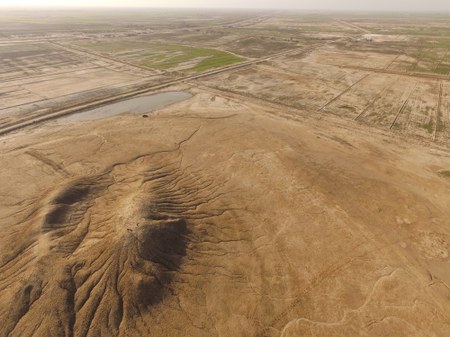In this section you can find information on the EDUU project WP 1 fieldwork activities. You can download the full action plan for WP 1 from the link in the right column.
EDUU partners have built collaborative research groups formed by EU and Iraqi researchers, scholars, and operators that are closely collaborating in order to share best practices and improve local expertise.
The research group has identified 3 theme areas:
- Reconstructing pre-Islamic societies and identities;
- Ancient landscapes and management of present natural resources;
- The role of rural communities in preserving heritage sites in South Iraq.
These three interrelated themes will be tackled by building a multi-tiered research framework encompassing archaeological excavations, innovative technologies for surveying, remote sensing, geo-archaeological and environmental analyses, restoration works and anthropological and ethno-archaeological surveys.
The timeframe that will be targeted by fieldwork is mostly comprised between the 3rd and the 1st millennia B.C., corresponding to the Bronze and Iron Ages. Within this long timespan, different pre-Islamic civilizations occupied the study areas, Sumerians, Akkadians, Babylonians, Kassites, Assyrians, et.. All these societies left distinctive traces on the ground and distinctive material cultures.
The EDUU project aims at increasing the knowledge of these pre-Islamic societies in Iraq through two archaeological surveys in Al-Qadisiyah, one archaeological excavation in Wasit and one anthropological and ethno-archeological survey in Najaf.
These fieldworks, carried out by EU and Iraqi researchers, will create new scientific data on the ancient societies and identities of Iraq, at the same time increasing the skills of the Iraqi researchers who will be also supported in publishing their findings. EDUU will target both English and Arabic scientific journals raising the awareness of both the international and national community of the importance of the rich Iraqi Pre-Islamic cultural heritage.
These solid academic findings will be the base of the work that the EDUU team will carry out in WP3 and WP4 with secondary schools, museum and cultural heritage associations that will become the repository of this new knowledge with the mandate of disseminating it to the society at large to contribute to the debate of the Iraqi national multicultural identity.


